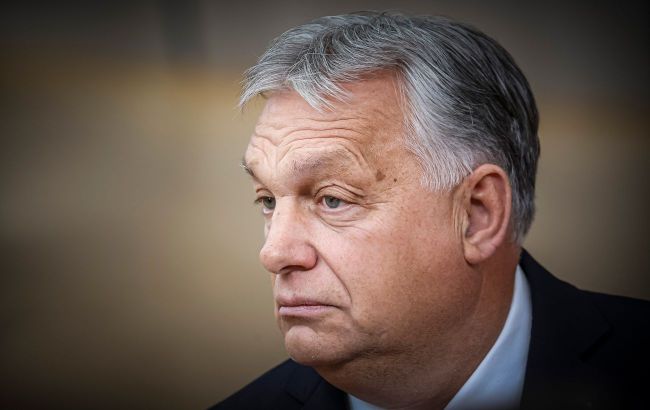Orbán faces risk of losing power amid Hungary's economic woes - Reuters
 Photo: Viktor Orbán (Getty Images)
Photo: Viktor Orbán (Getty Images)
Hungarian Prime Minister Viktor Orbán’s hopes that a strong economy will help his Fidesz party secure another victory in the 2026 elections are being questioned due to rising inflation, declining public morale, and even falling birth rates, which Orbán has sought to boost, Reuters reports.
The media resource points out that recent warnings from Hungary's central bank about heightened inflation risks mark a significant setback for Orbán, whose government now faces the threat of potential US tariffs impacting its export-dependent economy.
Since the Russian invasion of Ukraine in February 2022, Hungary has experienced the highest inflation spike in the European Union, and prices remain a serious concern for households.
"Hungarians have not seen such a decline in living standards since Fidesz came to power (in 2010)," said Balazs Szent-Ivanyi, a political economist at Aston University focusing on central Europe.
A survey of EU consumers conducted in January revealed growing pessimism about economic prospects than a year ago, with nearly four in ten Hungarians expecting their financial situation to worsen, according to insurer Generali.
"The high levels of inflation in 2022 and 2023 have left their mark, with many households seeing declines in their real incomes," Szent-Ivanyi said, adding that Orbán's party could still use its media network to form public discourse in its favor before the vote.
Orban started a $5.35 billion spending spree ahead of the last election in 2022 to avoid a threat from a previous opposition challenger - with the vote handing him another landslide victory at the cost of rising inflation.
None of the 12 economists surveyed by Reuters in January expect Hungary’s economy to reach the 3.4% growth projected by Orbán’s government for this year. Erste Bank predicts growth at 2%, while the European Commission forecasts 1.8%, the weakest three-year period before the national elections in Orbán's 15 years in power.
Orbán has planned to increase family benefits in the second half of this year and again in 2026. However, despite what his government calls the most generous family support program in Europe, Hungary’s birth rate has fallen to its lowest level in ten years.
Some polls show that Peter Magyar's surging center-right Tisza party is gaining in popularity and has surpassed Fidesz in some surveys.
Nicholas Farr, an analyst at Capital Economics Emerging Europe, noted that this raises the "real prospect" that Orbán may lose the upcoming election for the first time since coming to power in 2010.
Efforts to stay in power
As the race tightens, Mujtaba Rahman, Managing Director of Eurasia Group Europe, predicts that Orbán will take extensive measures to stimulate the economy by using his influence over media and government institutions.
"His communications machine is excellent for persuading his core voters things will get better," Mujtaba Rahman said.
Orbán plans for an economic boost from subsidies for home purchases and renovations, increased tax benefits for families, as well as a capital injection for small businesses as well as wage and pension increases.
Large-scale handouts helped him to achieve an easy victory in the last election in 2022. However, with the forint near two-year-lows to the euro and the deficit above EU standards, a similar expenditures growth now could risk a market backlash.
Credit rating agencies have announced they could downgrade Hungary if its state finance levels deteriorate beyond expectations.
"The big risk is the budget towards the end of the year and the desire for election giveaways, potentially leading to a weakening of the forint which will then feed through to price rises in imported goods," Rahman said.
Hungarian Prime Minister will hope Hungarians start to feel better about their prospects as the election approaches, although his government appears to have pushed back expectations for a stronger economic recovery to the second half of this year.
A late-November survey by think tank Policy Solutions revealed that Hungarians were mainly concerned by their salaries. Their levels are among the lowest in the EU even though food prices have increased to EU average levels.
"The main issue will be whether Hungarians feel like they can afford somewhat more from their income relative to the price levels which have emerged in the past years," Policy Solutions Director Andras Biro-Nagy said.
Hungary is the only neighboring EU member state that Ukrainians consider hostile. This attitude is shaped due to Orban's pro-Russian position, which blocks aid to Kyiv.

